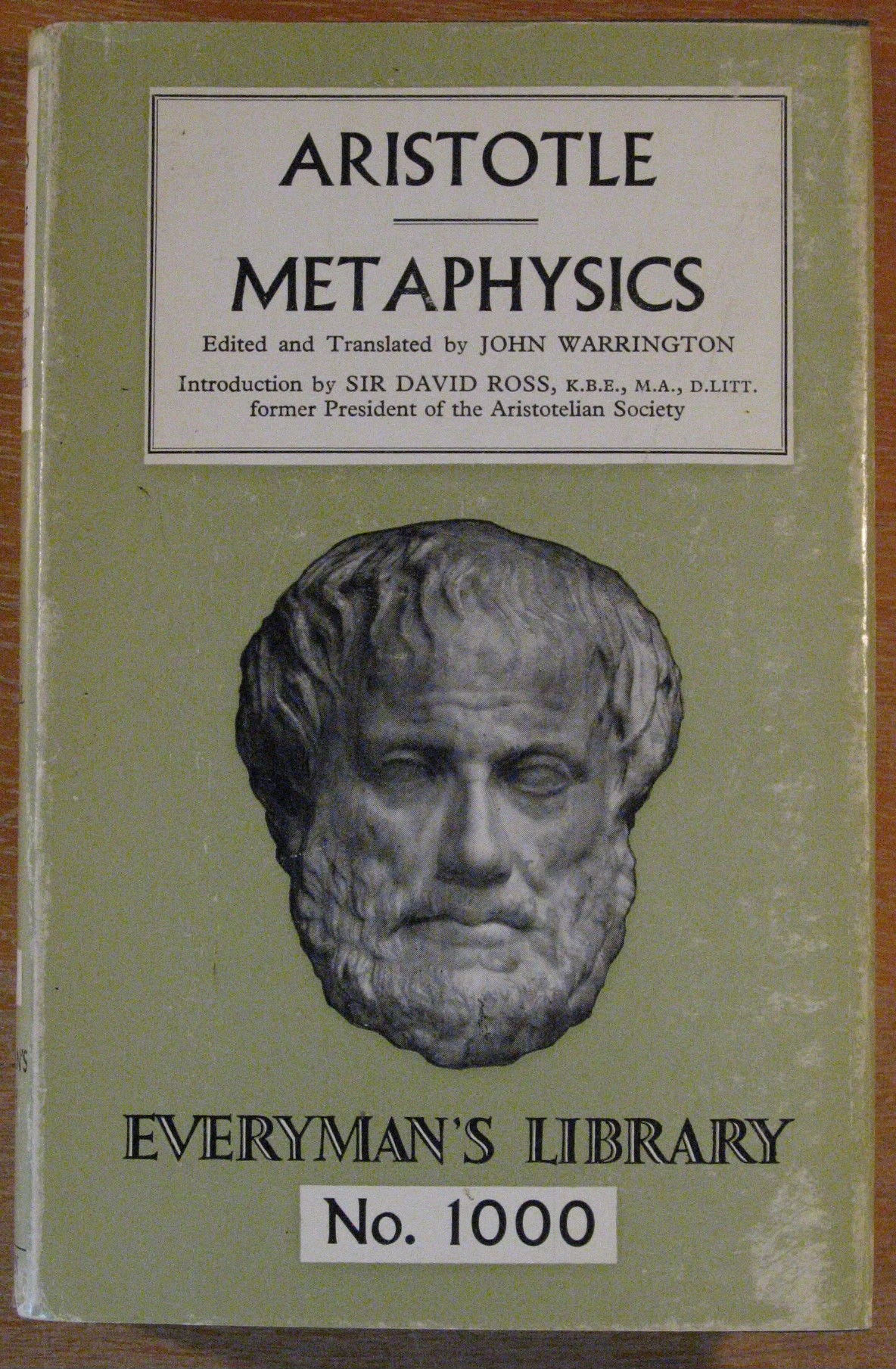Human Dignity Rooted in the Human Mind
Each human being possesses a natural dignity because each human being houses a metaphysically free mind capable of choosing and governing the human being inside of which a mind actively thinks.
For two decades in the middle of the 20th century, Leo Strauss was the Robert Maynard Hutchins Distinguished Service Professor within the Department of Political Science at the University of Chicago. In 1959, Professor Strauss spoke at the Annual Graduation Exercises for The University of Chicago’s Basic Program of Liberal Education for Adults.
His concluding observations remain profound meditations on the metaphysical miracle of the human mind, which—according to Strauss—is the “true ground of the dignity of man.”
We cannot exert our understanding without from time to time understanding something of importance; and this act of understanding may be accompanied by the awareness of our understanding, by the understanding of understanding, by noesis noeseos, and this is so high, so pure, so noble an experience that Aristotle could ascribe it to his God. This experience is entirely independent of whether what we understand primarily is pleasing or displeasing, fair or ugly. It leads us to realize that all evils are in a sense necessary if there is to be understanding. It enables us to accept all evils which befall us and which may well break our hearts in the spirit of good citizens of the city of God. By becoming aware of the dignity of the mind, we realize the true ground of the dignity of man and therewith the goodness of the world, whether we understand it as created or as uncreated, which is the home of man because it is the home of the human mind.
What distinguishes humans from all other living, even sentient beings, is not merely that human beings have the capacity to understand: Human beings alone can understand that they have the capacity to understand.
The Understanding of Understanding
The Greek phrase noesis noeseos that Strauss invokes translates into English as something like understanding that one can understand, or thinking about one’s own capacity to think, reason, know, and what that means.
This deeply philosophic form of self-awareness “is so high, so pure, so noble an experience,” Strauss suggests, “that Aristotle could ascribe it to his God.” We would do well to remember Aristotle’s understanding of God, which he defined as “eternal thought thinking itself.”
When you become aware of your own capacity for logos—another Greek term meaning word, or reason—and you understand that you are capable of thinking, reasoning, and knowing because you are human, you begin to understand that other human beings share the same capacity.
They too can think, reason, and know. They too have the capacity for logos.
Becoming aware not merely of your own but the human capacity for reason, which other human beings possess simply by virtue of being human, is the premise for language and articulate speech.
Why, after all, would you ever spend time and energy trying to articulate thoughts, with words, and communicate to someone else? Why would you ever attempt to speak or write to someone who is not inside your own mind?
Answer: Because you know that someone else has the capacity for understanding, like you do, because the other person is human, like you are. That is the source of hope that articulate speech between and among two or more people, might be possible.
Intelligible v. Sensible
Stated another way, the human being is the only Earthly being that can abstract what is intelligible from what is sensible. Only the human being can abstract what is intelligible and understandable to the mind from what is experienced through sense perception.
All animals with sense perception experience heat from fire, for example. But only human beings can compare their own experience of fire to the fire Prometheus stole from the gods, or the fire that burned the Library at Alexandria, or the Great Chicago Fire of 1871.
Non-human animals can see, hear, smell, taste, touch, etc. They can feel pain and pleasure. Some animals even communicate pain and pleasure with sounds and body movements.
Only the human animal, however, can think about what he experiences through sense perception. Only human beings have the capacity to abstract the intelligible from the sensible.
Only the human being can compare how the food in front of him was prepared—its taste, texture, nutrition, etc.—to how food was prepared two thousand years ago. Only the human being can imagine, with articulate speech, alternative ways of preparing and seasoning food.
When a young child sees or hears others and responds by announcing, “That’s not fair,” we witness what Aristotle called the “agent intellect” of the mind at work. The mind of the child abstracts from what he saw or heard and compares it to some abstract standard of justice—some abstract measure of fairness—that is not confined to mere sense perception, and then concludes whether the actions he witnessed are fair or unfair, just or unjust, right or wrong.
The agent intellect—the active capacity of the mind to reason and speak and think and know—the ability to abstract complex ideas from what is seen and heard and smelled and tasted and felt—is what separates human beings from all other animals. That’s why other animals, impressive as some are, never compare how they live now to how their ancestors hundreds or thousands of years ago lived. Other animals never compare the thoughts they now entertain to the thoughts of those like themselves from generations ago.
Other animals never offer syllogistic arguments about what is just or unjust. Other animals never explain with articulate speech what a syllogism is because a syllogism is abstract; a syllogism is not seen, tasted, smelled, heard, or felt.
Other animals don’t speak about these subjects because they don’t have an agent intellect and, therefore, they lack the ability of mind to abstract the intelligible from the sensible.
Time Travel
The human mind can travel through time and across space because some part of the mind is not physical matter; it is metaphysical. The mind, therefore, can participate in that which is eternal, unchanging, as well as that which happened in a distant time or place.
We might not live for eternity, yet, with our minds, we can participate in that which is eternal. We can think outside of our own time.
The ability of the human mind to abstract from the immediate surrounding physical world is one of the great natural marvels and mysteries of the universe. It’s why the mind can calculate details about a perfect triangle no human eyes have ever seen, or articulate with words a perfectly just regime in which no human being has ever lived.
The mind, being abstract, free, and metaphysical, has no physical attributes. Something metaphysical cannot be physical. The mind therefore cannot have a physical attribute such as color. There is no black mind, no white mind. There is simply, mind.
Those who dismiss the minds of some as “whiteness,” are either lying, confused, or both.
The mind makes it possible for a human being today to learn something important from an ancient book written by and about people he never met in person, written by and about people who looked quite different from himself, a book written in a different language and by people who lived a way of life that seems peculiar to us today.
To understand the mind is to understand the miraculous and metaphysical beauty of the mind, which is, as Strauss points out, “entirely independent of whether what we understand primarily is pleasing or displeasing, fair or ugly.”
Learning how cruel human beings can be to one another in their attempts to control and command others, throughout history, is to understand something displeasing. Human history is filled with stories that are both true and ugly.
Still, understanding that the human mind is capable of understanding is a beautiful human experience of the highest kind.
From this noesis noeseos—by understanding that one’s own mind can abstract what is intelligible from what is experienced by sense perception, Strauss concludes:
By becoming aware of the dignity of the mind, we realize the true ground of the dignity of man and therewith the goodness of the world, whether we understand it as created or as uncreated, which is the home of man because it is the home of the human mind.
Each human being possesses a natural dignity because each human being houses a metaphysically free mind capable of choosing and governing the human being inside of which a mind actively thinks.
Home of the Human Mind
We see here that the source of self-government is human nature itself. You have a natural right to govern yourself—to make choices for yourself—because your body houses within it a thinking and choosing free mind.
We also see a profound affirmation of the equality principle enshrined in our Declaration of Independence: While human beings may differ from one another and be unequal in many respects, in the possession of a mind that is capable of understanding the capacity to understand, all human beings are equal.
We should respect the dignity and rights of other people not because of their skin color, sexual preferences, or left-handedness, but simply because each is a human being with a miraculous, metaphysically free mind capable of defying the laws of physics.
In this decisive respect, black lives matter only if all human lives matter. A black life matters because each black person possesses a colorless, metaphysically free human mind, as does every person of every other skin color.
As Professor Strauss writes, Planet Earth and the universe in which it spins possesses a kind of dignity because the world “is the home of man” and therefore “the home of the human mind.”
Contrary to what some environmentalists would have us believe, the world would not be better without human beings. The world is good precisely because it is the home of human beings and therefore the home of human minds.
The Hand of Force
In 1774, Thomas Jefferson penned an essay titled, “A Summary View of the Rights of British America.” It was his audition, of sorts, that qualified him to author the Declaration of Independence two years later.
Toward the end of his essay, Jefferson thundered: “The God who gave us life gave us liberty at the same time; the hand of force may destroy, but cannot disjoin them.”
Jefferson was right. The hand of force may destroy both human life and human liberty. But force cannot “disjoin” or separate them. Where there is human life there is liberty, because where there is human life there is a free human mind, the intrinsic source of human liberty and dignity.
Thomas Jefferson and Leo Strauss agree with each other.
The dignity of the human mind is why every political attempt to diminish human beings and use them as mere physical cogs within a machine—ignoring the free mind within each and using the hand of force to command, plan, and engineer the lives of others—is intrinsically wrong. It treats what is metaphysically free and therefore wondrously miraculous as nothing but a physical tool.
In every tyranny, ancient or modern, men are turned into hammers. Yet, men are not hammers. Men have minds. Hammers do not.









